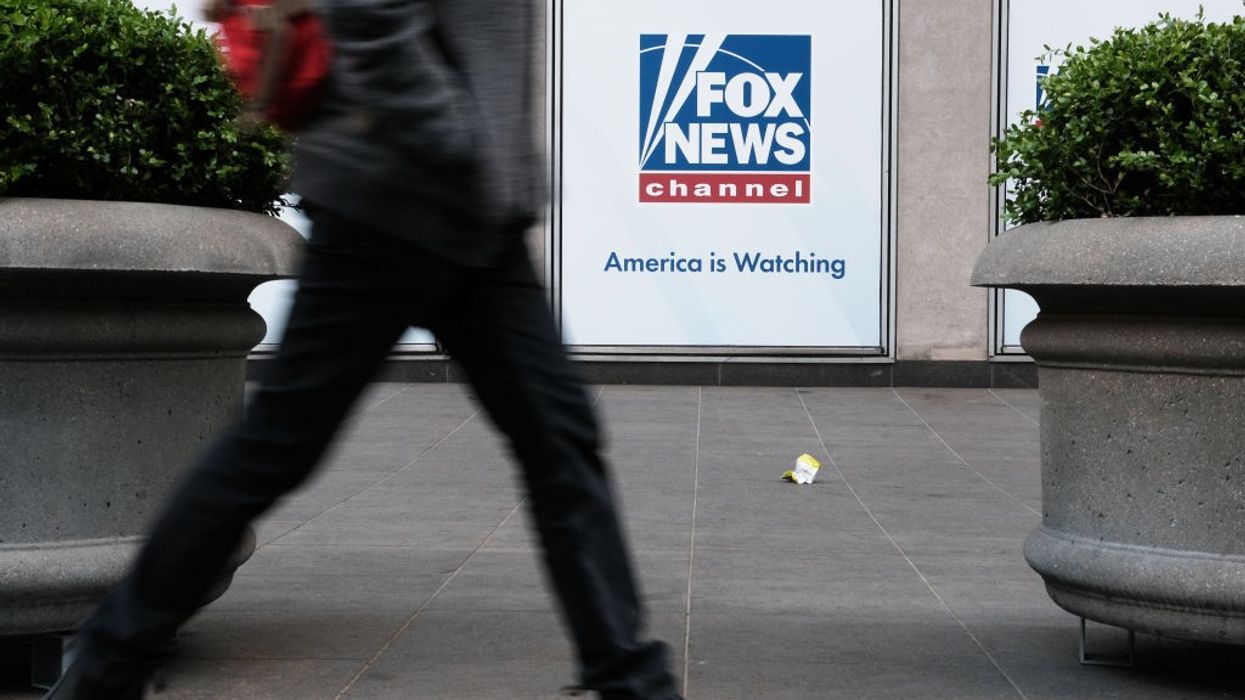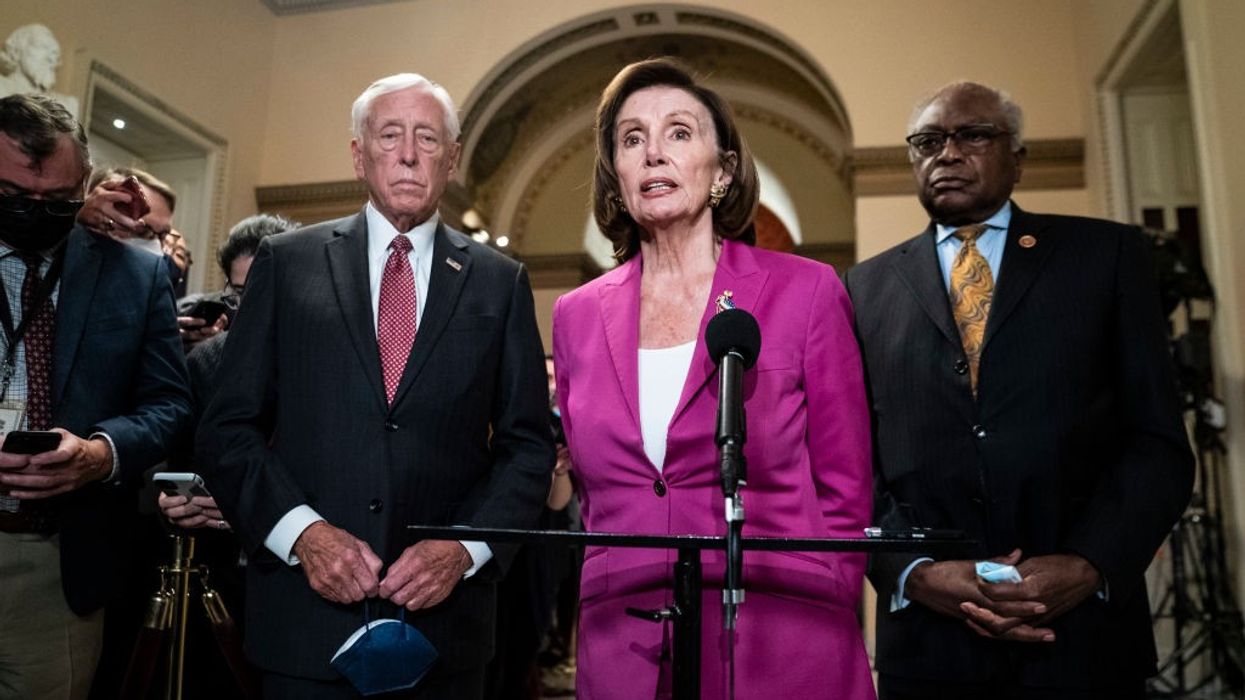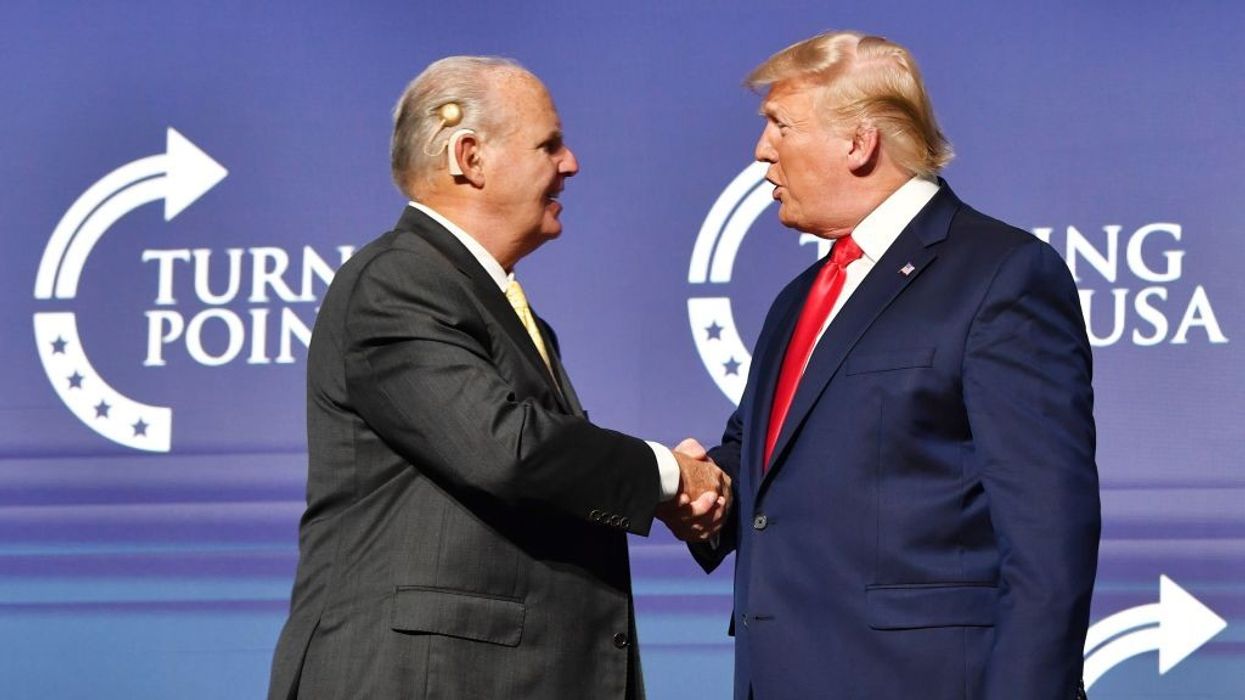Right-Wing Control of Media Has Crushed the Promise of US Democracy
If progressives want to slow this speeding train heading toward single-party rule of America, they must get with the program and begin to support existing and build out new and powerful policy think tanks and media operations.
Republicans are using their massive structural media and social media advantage to try to destroy Gavin Newsom, Karen Bass, and the California Democratic Party.
It follows an old script, that’s recently been played out in Russia and Hungary, among other nations: Want to seize control of a nation and turn it into a neofascist state with the consent of the people? Just take control of the channels of public information and news, and then turn lies about your opponents and their supporters into a perceived reality.
Over the past 50 years, Democrats have been busy focusing on and working out policies to benefit average Americans. Increasing access to medical care, $35 insulin, reducing student debt, the CFPB to protect people from banks, cleaning up the environment, American Rescue Act, Inflation Reduction Act, etc.
Republicans and billionaires aligned with them, however, have not only fought against all these efforts, but, far more importantly, have engaged in a massive power play to shift control of popular opinion — and thus control of our government — toward themselves in a way they believe could be permanent.
The plan for this wasn’t a secret; it was laid out in a 1971 memo by tobacco lawyer Lewis Powell, who Richard Nixon put on the Supreme Court in 1972 where he could participate in putting the plan into action — as he did with the Buckley and Bellotti decisions (Powell wrote the latter) legalizing political bribery by saying “money is free speech” and “corporations are persons.”
It began the corruption of the American government by the Reagan administration.
But the details of the GOP’s efforts — which Democrats and wealthy Democratic donors should begin to emulate now if our republic is to survive — are rarely discussed. Here’s what they did, in outline, and how Democrats can fight back.
First, Republicans realized that public opinion drives everything, so they set out to seize as much control over the instrument that drives public opinion as they could: the media.
The details of the GOP’s efforts — which Democrats and wealthy Democratic donors should begin to emulate now if our republic is to survive — are rarely discussed. Here’s what they did, in outline, and how Democrats can fight back.
Second, they realized that the Senate was the power-based linchpin for control of the legislative branch and the key to controlling both the Executive and Judicial branches because only the Senate confirms presidential cabinet positions and federal judges.
If they controlled the Senate much of the time and occasionally got a Republican president, they could also easily stack both the federal judiciary and the Supreme Court.
To control the Senate, they knew, they had to control a majority of the states. And that came back to controlling public opinion through the media, particularly in low-population or largely rural states where media could be bought or coopted cheaply.
To first influence public opinion, back in the 1970s-1990s era, billionaires associated with the GOP built a whole series of institutions whose sole purpose was to influence public opinion in ways that comported with the billionaire’s oligarchic agenda.
They crank out policy papers, write op-eds for newspapers and websites, engage in social media, and provide “expert” guests for TV, radio, NPR, and podcasts. Another major function is to “educate” and lobby Republican elected officials about policy and nominees to executive and judicial positions.
Those include:
— Cato Institute
— Mercatus Center at George Mason University
— Americans for Prosperity
— Heritage Foundation
— Manhattan Institute
— American Enterprise Institute (AEI)
— Competitive Enterprise Institute (CEI)
— DonorsTrust
— Independent Women's Forum (IWF)
— Federalist Society
— Judicial Crisis Network (Now Concord Fund)
— Republican State Leadership Committee
— Alliance Defending Freedom
— Marble Freedom Trust
— 85 Fund (Formerly Judicial Education Project)
They also created the State Policy Network, which funds and guides a network of state-based think tanks in every state in America. They similarly influence political discussion through interactions with the media by publishing papers, participating in social media, and lobbying/educating Republican governors, state representatives, and senators. (At the end of this article is a list of them.)
There is no similar infrastructure on the left because no lefty billionaires ever set out to create one.
There are a few left-leaning think tanks and policy outfits like Public Citizen, NAACP, ACLU, Center for American Progress, Economic Policy Institute, Roosevelt Institute, Demos, and the Century Foundation. None of these, however, have levels of funding, inter-agency coordination, or integration with the Democratic Party that even begins to approximate the list of conservative organizations above.
In addition to creating powerful, well-funded groups to influence public policy, conservatives focused on the media itself, which they had historically seen as their enemy. Early efforts included Lee Atwater’s famous 1980s “work the refs” strategy of complaining loudly whenever media outlets reported on partisan issues that reflected poorly on the GOP and its politicians.
These were followed by funding and rolling out Rush Limbaugh’s show (1988), Reagan fast-tracking the citizenship of Rupert Murdoch and the subsequent start of Fox “News”; Sinclair’s purchase of hundreds of local TV stations; billionaires like the Dickey brothers purchasing hundreds of local radio stations; and Mitt Romney’s Bain Capital purchasing Clear Channel (2008) and then taking progressive Air America programming off their stations (2010).
Multimillionaire televangelists and wealthy rightwing Hispanics got into the game as well over the past two decades, purchasing over a thousand radio stations nationwide.
The result of these collective efforts is around 1500 radio stations programming rightwing talk (and hundreds of young “farm team” rightwing talk show hosts learning the trade in local markets), almost a thousand “nonprofit” religious stations that also push rightwing politics, and several hundred rightwing Spanish-language stations (that had a huge influence on the Latino vote in 2024).
Rightwing media is now a multi-hundred-billion-dollar-a-year enterprise that includes three major cable TV networks, and more recently rightwing billionaires have ventured into the newspaper business. Jeff Bezos bought The Washington Post, Patrick Soon-Shiong picked up the LA Times, Rupert Murdoch bought the NY Post and The Wall Street Journal, and New York City-based hedge funds run by rightwing billionaires own around half of all local newspapers in the country.
And now they’re focusing this media behemoth toward their efforts to destroy the Democratic Party in California and neuter Governor Newsom’s hopes to one day become president.
Again, there is no leftwing or Democratic analog to this media empire that’s been created and is held together largely by a handful of conservative billionaires.
A major parallel strategy Republicans followed was to use this media monster to take over enough states to take control of the Senate and, even when not in majority control, use the filibuster to block Democratic efforts at reform.
There is no leftwing or Democratic analog to this media empire that’s been created and is held together largely by a handful of conservative billionaires.
Their initial focus was low-population and largely rural states, as radio stations, TV stations, and newspapers in those markets are often very cheap.
By the end of 2010, when Romney/Bain shut down the progressive Air America radio network that had helped get Barack Obama elected in 2008, one could drive from coast-to-coast and continuously hear rightwing talk radio but only rarely (when passing through big cities or on SiriusXM) find a progressive voice.
This silencing of progressive talk radio and absolute dominance of the airwaves, both on radio and TV, made it easy for Republicans over the past 35 years to flip low-population and rural states that had been Democratic for generations into the GOP’s camp.
West Virginia, Arkansas (former governor: Bill Clinton), Kentucky, Louisiana, Alabama, Montana (former governor: Brian Schweitzer), Iowa (former governor: Tom Vilsack), Wyoming (former governor: Mike Sullivan), Tennessee (former senator: Al Gore), Georgia (former governor: Roy Barnes), Missouri, and Texas (former governor: Ann Richards) all went from solid blue or largely blue to solid red, as there have functionally been no dissenting voices heard in local media since the 1980s.
A large handful of other states followed a similar trajectory, giving Republicans majority control of the least democratic of our legislative institutions, the Senate, where Wyoming (pop: 584,000) has the same two senators — and thus the same legislative power — as California (pop: 38.9 million).
Following these victories, Republicans turned their attention to the fastest growing aspects of the Fourth Estate: Social media and podcasts. With help from Vladimir Putin’s Internet Research Agency and Wagner Group trolls, GOP operatives, politicians, talk hosts, podcasters, influencers, and cyberbullies began to saturate social media and podcasts with messages condemning Democrats for every little thing that went wrong in America.
Most recently, they’ve brought control of X, Facebook, Instagram, Threads, and WhatsApp under their banner, both through allowing the uninhibited spread of political lies and disinformation and by tilting their secret algorithms that control what content people see toward the right.
As a result, Republicans — using their vast think tank and media power — have succeeded in rolling back voting rights, civil rights, women’s rights, and taking an axe to public education. And now they’re using lies and slander to go after Gavin Newsom.
This massive machine was so successful in recasting the public perception of elected Democrats that millions of dispirited formerly-Democratic voters simply gave up and failed to vote in the 2024 election.
Next in their sights — along with more tax cuts for the billionaires who funded all this — are healthcare and Social Security, as they work to roll back the last 100 years and end the New Deal and Great Society.
If Democrats want to slow this speeding train heading toward single-party rule of America, they must get with the program and begin to support existing and build out new and powerful policy think tanks and media operations.
The coming election of a new DNC chair presents an opportunity to begin reforming and redirecting the efforts of the Party to a 50-state strategy that can effectively compete with Republicans.
And billionaires with a social conscience — like MacKenzie Scott, Reid Hoffman, Laurene Powell Jobs, and Tom Steyer — need to consider emulating the efforts of Charles Koch, Miriam Adelson, Richard and Elizabeth Uihlein, Robert and Rebekah Mercer, and Ken Griffin.
Republicans have already decided to exploit the climate-change-driven wildfires on the west coast to try to flip California from Blue to Red in the next elections. They’re using their massive media machine to promote naked lies, blaming the fires on Democratic politicians while obscuring the role of the climate change driven by oil industry executives who fund the GOP and many of their think tanks.
Without an all-hands-on-deck effort to build out a Democratic media machine now, our precious democracy may soon be replaced with an authoritarian dystopia that serves nobody but the morbidly rich.
And California could become their biggest victory since the election of Governor Reagan.


